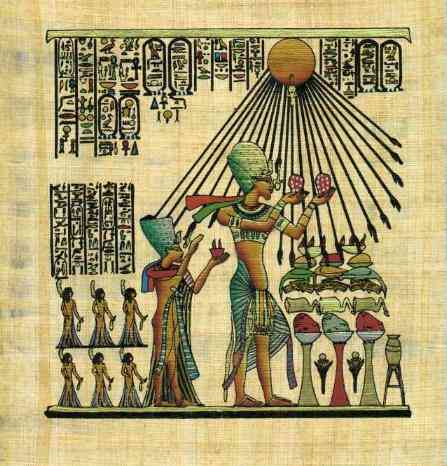



The first two poems assigned could also be called religious, but certainly they are very different from those we read for Tuesday. Be ready to summarize the philosophy of life of the writers of these two poems, based on the words he left inscribed on tomb walls. Both suggest another way of looking at life, one that you might compare with the advice the Tavern Keeper gives Gilgamesh. What's this advice? How did it play with Gilgamesh? Are there modern equivalents of these two poems?
In "The Wisdom of Amenemopet," we move into more practical advice on how to become a successful man, circa 1250 BCE. Speaking to his youngest son, the scribe Hor-em-maa-kheru, Amenomopet want to pass on what he has learned in his years as an official of the government. I'd like you to start by looking at his Prologue. What does he need to establish before going on to give his advice, often in proverbial form?
For each of the thirty chapters of his poem, you should note briefly what his major subject is, so that you'll have a kind of guide to the content of the poem.
Then think about the following questions:
1. What are Amenemopet's
primary themes in this instruction? How can you break it down into two or three
thematic statements? What are the important things in life, according to the
speaker?
2. Pick out
and be ready to discuss two of his proverbs, of which you will find many.
3. Also, choose one or two of Amenemopet's extended metaphors, often used to
illustrate his abstract ideas, and be ready to talk about it/them as well.
4. Finally, since this advice is aimed at a man from an upper middle class background,
think about the cultural ideals that it aims to communicate to the next generation.
Return to Daily Readings and Assignments Page
Return to Home Page